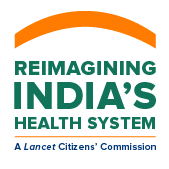In Conversation: Tejasvi Ravi, Principal at Lightrock
March 10, 2022

As an impact investor (I lead healthcare investments at Lightrock, a global impact investment fund), I focus on how we can deploy private capital to solve critical problems in healthcare with models that generate both social and financial returns. While I do believe that both objectives go hand-in-hand, it does also demand more thoughtfulness in making the right design choices for e.g. in aligning incentives. The private sector not only is a dominant source of healthcare delivery, it is also such a rich source of innovation. I am deeply interested in how we can shape the nature of the market and the competition in a way that leverages the private sector to benefit patients at scale.
Bindu Ananth, Neela Saldanha and I are focused on how we can derive more value for patients from out-of-pocket expenditures, which currently is the dominant mode of payment. We believe we need to move the healthcare market from one of transactional competition to “value-based” competition. This requires interventions on the supply side, including encouraging better models of care, but also on the demand side in empowering customers, with decision markers for example, so that they make better choices. We also look at incentive design as a way to influence the supply side. While we are largely studying the private sector, several of these insights are likely to be universally applicable.
Achieving UHC is going to need several significant mindset shifts by all stakeholders. Each design choice is critical – from the role of the regulators to the incentives of the private providers and the health seeking behaviors of consumers. From my perspective, the right framework to govern and shift private provider behaviors is made significantly more complex by the extremely fragmented nature of supply. It will be a massive endeavour to bridge the execution gap in an environment where organized players have a very small share of the market.
The diverse mix of inputs that are shaping the recommendations of the Commission will hopefully result in a roadmap that is not just based on the right theories of change, but that is also rooted in on-ground experience of implementation. I also hope that our work here does not stop with the report but the engagement continues in efforts to seed and programmatically manage the transformation needed.
